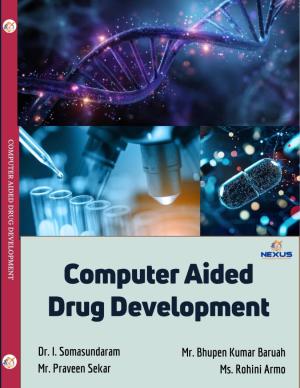COMPUTER AIDED DRUG DEVELOPMENT
Keywords:
Synopsis
Computer-Aided Drug Development (CADD) represents a transformative approach in pharmaceutical research, integrating computational modeling, bioinformatics, and artificial intelligence to streamline the discovery and optimization of therapeutic agents. By simulating molecular interactions and predicting biological activity, CADD significantly reduces the time, cost, and failure rate associated with traditional drug discovery methods. Key methodologies include molecular docking, pharmacophore modeling, quantitative structure-activity relationships (QSAR), and virtual screening, which collectively enable the identification of promising drug candidates with enhanced specificity and safety profiles. Advances in high-performance computing and machine learning have further expanded the capabilities of CADD, allowing for more accurate predictions of ADMET (Absorption, Distribution, Metabolism, Excretion, and Toxicity) properties. This abstract highlights the pivotal role of CADD in modern drug development, its core techniques, and its growing impact on personalized medicine and targeted therapies.
Chapters

Downloads
Published
License

This work is licensed under a Creative Commons Attribution-NonCommercial-NoDerivatives 4.0 International License.




